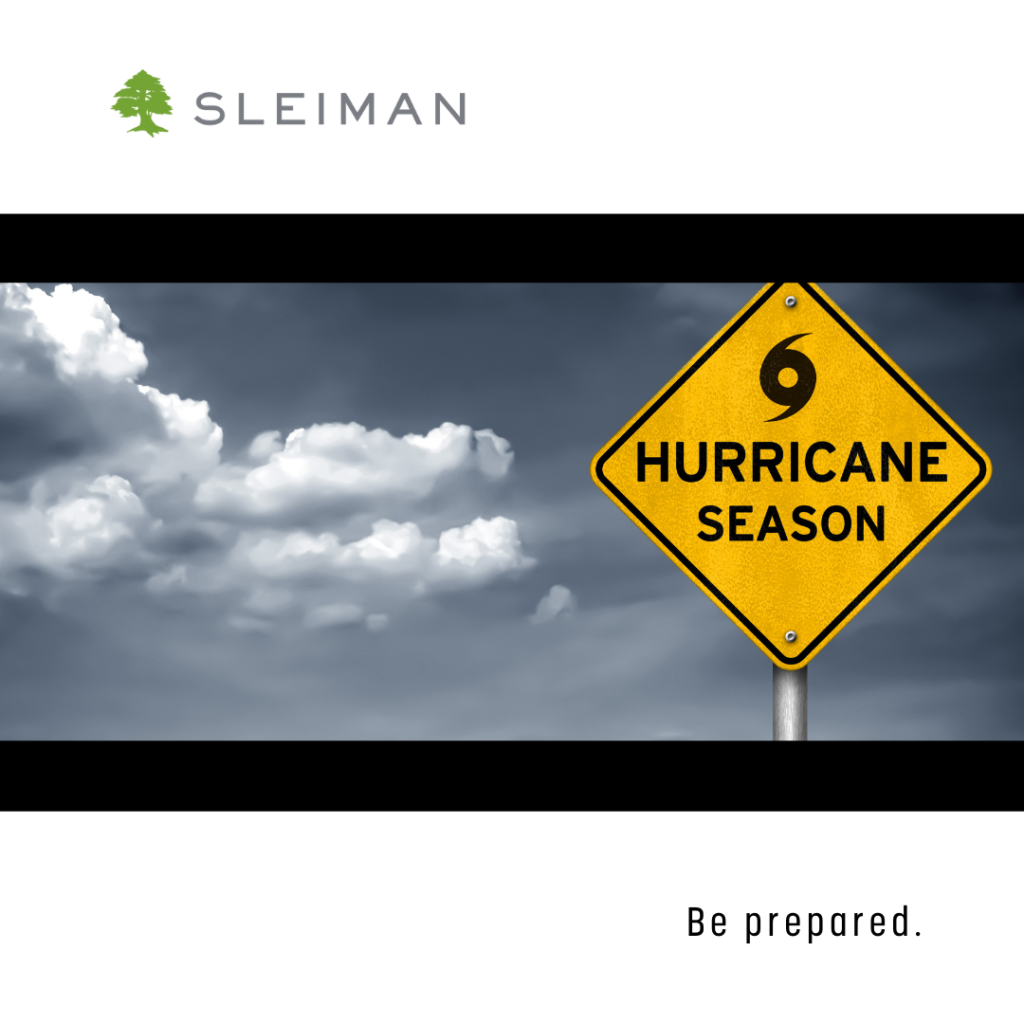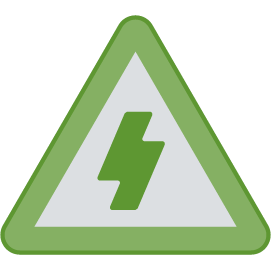Please read over this helpful information provided by Ready.gov that will educate you on how to prepare for hurricane season. You can view the Ready Business Hurricane Toolkit for useful information.
Prepare for Hurricanes

Know your Hurricane Risk
Hurricanes are not just a coastal problem. Find out how rain, wind, water, even tornadoes could happen far inland from where a hurricane or tropical storm makes landfall. Start preparing now.
Make an Emergency Plan
Make sure everyone in your household knows and understands your hurricane plan. In your hurricane plans include the office, kids’ daycare, and anywhere you frequent. Ensure your business has a continuity plan to continue operating when disaster strikes.
Discuss the latest Centers for Disease Control (CDC) guidance on Coronavirus (COVID-19) and how it may affect your hurricane planning.
Know your Evacuation Zone
You may have to evacuate quickly due to a hurricane if you live in an evacuation zone. Learn your evacuation routes, practice with household, pets, and identify where you will stay.
- Follow the instructions from local emergency managers, who work closely with state, local, tribal, and territorial agencies and partners. They will provide the latest recommendations based on the threat to your community and appropriate safety measures.
Recognize Warnings and Alerts
Have several ways to receive alerts. Download the FEMA app and receive real-time alerts from the National Weather Service for up to five locations nationwide. Sign up for community alerts in your area and be aware of the Emergency Alert System (EAS) and Wireless Emergency Alert (WEA)- which requires no-sign up.
Those with Disabilities
If you or anyone in your household is an individual with a disability identify if you may need additional help during an emergency.
Review Important Documents
Make sure your insurance policies and personal documents like ID are up to date. Make copies and keep them in a secure password protected digital space.
Strengthen your Home
De-clutter drains and gutters, bring in outside furniture, consider hurricane shutters.
Get Tech Ready
Keep your cell phone charged when you know a hurricane is in the forecast and purchase backup charging devices to power electronics.
Help your Neighborhood
Check with neighbors, senior adults, or those who may need additional help securing hurricane plans to see how you can be of assistance to others
Gather Supplies
Have enough supplies for your household, include medication, disinfectant supplies, masks, pet supplies in your go bag or car trunk. After a hurricane, you may not have access to these supplies for days or even weeks.
- Remember that not everyone can afford to respond by stocking up on necessities. For those who can afford it, making essential purchases and slowly building up supplies in advance will allow for longer time periods between shopping trips. This helps to protect those who are unable to procure essentials beforehand and must shop more frequently. Only take the items you and your family may need so that others who rely on these products can also access them.
Stay Safe During a Hurricane

Stay Informed
- Pay attention to emergency information and alerts.
- If you live in a mandatory evacuation zone and local officials tell you to evacuate, do so immediately.

Dealing with the Weather
- Determine how best to protect yourself from high winds and flooding.
- Take refuge in a designated storm shelter, or an interior room for high winds.
- If trapped in a building by flooding, go to the highest level of the building. Do not climb into a closed attic. You may become trapped by rising flood water.
- Do not walk, swim, or drive through flood waters. Turn Around. Don’t Drown! Just six inches of fast-moving water can knock you down, and one foot of moving water can sweep your vehicle away.

Personal Safety
- If you must go to a community or group shelter remember to follow the latest recommendations from the Centers for Disease Control and Prevention (CDC) for protecting yourself and family from COVID-19. Be sure to review your previous evacuation plan and consider alternative options to maintain physical distancing to prevent the spread of COVID-19 and update your plan accordingly.
- If you must evacuate, if possible, bring with you items that can help protect you and others in the shelter from COVID-19, such as hand sanitizer, cleaning materials, and two clean, well-fitted masks that have two or more layers for each person.
Returning Home After a Hurricane
- Pay attention to local officials for information and special instructions.
- Be careful during clean-up. Wear protective clothing, use appropriate face coverings or masks if cleaning mold or other debris, and maintain a physical distance of at least six feet while working with someone else. People with asthma and other lung conditions and/or immune suppression should not enter buildings with indoor water leaks or mold growth that can be seen or smelled, even if they do not have an allergy to mold. Children should not take part in disaster cleanup work.
- Continue taking steps to protect yourself from COVID-19 and other infectious diseases, such as washing your hands often and cleaning commonly touched surfaces.
- Wear protective clothing and work with someone else.
- Do not touch electrical equipment if it is wet or if you are standing in water. If it is safe to do so, turn off electricity at the main breaker or fuse box to prevent electric shock.
- Do not wade in flood water, which can contain dangerous pathogens that cause illnesses, debris, chemicals, waste and wildlife. Underground or downed power lines can also electrically charge the water.
- Save phone calls for emergencies. Phone systems are often down or busy after a disaster. Use text messages or social media to communicate with family and friends.
- Document any property damage with photographs. Contact your insurance company for assistance.
- Engage virtually with your community through video and phone calls. Know that it’s normal to feel anxious or stressed. Take care of your body and talk to someone if you are feeling upset. Many people may already feel fear and anxiety about the coronavirus 2019 (COVID-19). The threat of a hurricane can add additional stress. Follow CDC guidance for managing stress during a traumatic event and managing stress during COVID-19.
This information is from Ready.gov – for more safety information, please visit their website.





